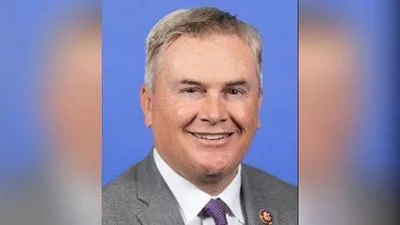Congresswoman Rosa DeLauro (D-CT-03), Chair of the House Appropriations Committee, delivered the following remarks at the Defense Appropriations Subcommittee hearing on the Impact of Continuing Resolutions on the Department of Defense and Services.
Thank you very much Madam Chair. I want to thank you and the Ranking Member for holding this important hearing on the impact of Continuing Resolutions and the kind of impact they have on the Department of Defense.
I first want to just say a thank you. Secretary of Defense Austin is not here this morning but, on December 6, he issued a statement about the contents of what we are speaking about today, in which he describes as a fiscally unsound way of funding the Department of Defense and government as a whole. So please convey my thanks to him.
I want to say a thank you to all of our witnesses today. It was amazing to me reading through the testimony, the consistency of message here about what in fact occurs when we engage in Continuing Resolutions. If I might, and I don’t mean to slight the others, but General Brown, thank you for your authorship of the book Accelerate Change or Lose: That we must change so we do not go backward. The time for us has come that we need to go faster, and the time is now for us to be able to do that.
I appreciate the witnesses, distinguished leaders in the military, coming to explain the consequences of what are - quite frankly - Congress’ failures.
Madam Chair, you and I have worked closely for months to enact a Defense appropriations bill for fiscal year 2022. I too would agree with you that the members of this Subcommittee are committed to moving forward on a Defense appropriations bill. But, while the Democrats are ready to negotiate and complete our work… Republican leadership hasn’t even offered a proposal of their own.
I have to say this, I wasn’t going to but just to clarify the record but the fact of the matter is in the history of appropriations bills, the issues on whether you call them policy writers or poison pills or legacy writers, whatever you want to call them, that has been debated at the end of the process. There has been the willingness on the part of Democrats and Republicans to come together and say let us talk about the top line. Let us move problematically, because in order to achieve a bicameral, bipartisan piece of legislation those issues will have to be resolved.
It’s not a question of pointing fingers, but the Democratic proposals are out there. To date, there has not been one single document that outlines where our Republican colleagues want to go.
President Kennedy once said, “There are risks and costs to action. But they are far less than the long-range risks of comfortable inaction." We need action on full year spending bills now. The longer our colleagues get comfortable in their inaction, the greater the long-range risks will be for our nation.
As you are Madam Chair, I am particularly alarmed by the suggestion of some that they would prefer to funding the government under a full-year Continuing Resolution. This would harm our military: stalling modernization efforts, readiness, capacity, recruitment, operations and maintenance, impacting pay for our troops, and wasting billions in taxpayer dollars on capabilities we no longer need.
After 20 years of war in Afghanistan have ended, we need to prepare for the security challenges of the future by modernizing weapons systems, such as strengthening our hypersonic weapons and artificial intelligence capabilities. A Continuing Resolution would severely curtail the transition to these modern, high-quality tools.
Readiness is essential to the strength of our military, but as the testimonies from our witnesses affirm, extended CRs - a full-year CR -would greatly impact our troops, their quality of life, their health care. Under a Continuing Resolution, Services would have to significantly curtail other personnel expenses, including potentially slashing the number of new recruits, to provide a statutorily authorized pay raise.
The witnesses in their testimony layout, as I mentioned earlier, a consistent message that asserts there are already serious consequences to the four-month delay of a budget agreement.
A full-year Continuing Resolution would keep platforms and systems that are no longer necessary in service, while blocking the start of new projects. It would reduce the buying power of the Defense Department and lock the Pentagon into last year’s spending, such as for a war in Afghanistan we are no longer fighting. There are few more egregious ways to waste the American people’s hard-earned tax dollars.
Finally, I am deeply concerned about the impact of a full-year CR on the millions of jobs the Defense industry sustains across the United States. I ask unanimous consent to insert into the record a letter from 11 Defense trade associations, which puts the harmful consequences of a full-year CR in stark terms: “Defense industry workforces are subject to seemingly endless stop-and-start contract cycles, creating inefficiency and disruption that ripples through the defense supply chain with disproportionate effects on smaller companies."
The consequences of a full-year CR are simply unthinkable. To protect our national security, sustain American strength vis a vis China and Russia, and further American leadership around the world, we need a government funding agreement, we need it now. It is time for our Republican colleagues to join us: negotiate a bipartisan, bicameral funding agreement.
I thank you, Madam Chair, for holding this hearing and I thank our witnesses once again.
Source: U.S. Department of HCA








